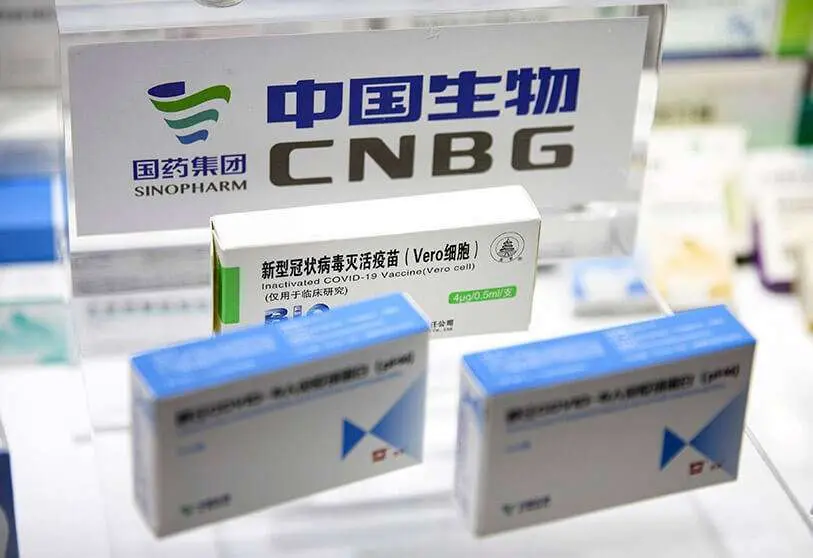Beijing strengthens its presence in Morocco thanks to Covid

Will we be vaccinated? Where? When? How will we be vaccinated?
For the past few months, Moroccans, and especially the Casablancs who are still in the red zone and partially confined, have been asking themselves these same questions in the hope of returning to a normal life, the one before Covid-19. Not right away, say the specialists.
Because even if vaccines are in the experimental phase, there is still a lot to be done.
In Morocco, in a city like Casablanca, markets are closed at 3 p.m., restaurants at 9 p.m. and curfew is effective an hour later. It is also forbidden to leave the city without a travel document.
While the Ministry of the Interior is in charge of prohibiting access to entertainment and social life to slow down the circulation of the virus, the Ministry of Health is working to find a more viable long-term solution. Last August an agreement was signed between Morocco and the Chinese laboratories Sinopharm CNBG on clinical trials of the vaccine in preparation. This cooperation also stipulates that Morocco will initially obtain 10 million doses. This means that 5 million Moroccans could be vaccinated, the vaccine being composed of two doses. Priority will obviously be given, of course, to the most vulnerable populations, it is announced. But the conditions of conservation of this vaccine pose a problem. Indeed, it must be kept in a cool place at -70°! Will Morocco have the necessary equipment and sufficient quantities to maintain the medicine at the required temperatures? In any case, the transport of the medicine to remote areas is likely to pose a logistical problem that must be taken very seriously.
But the Ministry of Health seems optimistic and it has been announced that a media campaign will soon be launched to explain the ins and outs of this vaccination.
On 18 August, Chinese State Councillor and Foreign Minister Wang Yi had a telephone conversation with Moroccan Foreign Minister Brida, who said that "China had given Morocco strong support at the most critical time of the coronavirus epidemic and that King Mohammed VI and the Moroccan government are deeply grateful". It's no secret that since 1975 Beijing had launched medical operations in Morocco which it has continued to strengthen. The acupuncture centre in Mohamadia, the medical centres in Settat, Agadir, Taza, Chefchaouen...are proof of this. To date, 8 important medical structures have been set up in the kingdom and thousands of Chinese doctors provide free treatment in the kingdom.
Since the pandemic, Beijing wants to further mark its anchorage in the country and takes advantage of the American isolationist policy launched by President Donald Trump. America's withdrawal from the WHO in the midst of the global pandemic has been a godsend for China, which reaffirms its power and hegemony. Beijing had offered two billion in donations to the WHO to fight the virus worldwide and has consolidated its links and penetration in many African and South American countries.
Morocco, through the Sothema laboratory and the BMCE BOA group (for the financing part), has thus linked up with the Chinese giant Sinopharm CNBG and clinical trials have already begun. The necessary sample of 600 volunteers has already successfully passed the first phase, the second dose of the vaccine will be inoculated in the coming days and the blood samples will be sent back to China for analysis. If they are conclusive, the vaccination campaign could be launched at the end of December or early January, the Minister of Health announced in an interview with Medias 24.
Morocco is not the only country to have opted for these Chinese clinical trials, other countries such as Peru, Argentina or the United Arab Emirates have also launched these operations.
But in these uncertain times, no country can afford an exclusive agreement with a single laboratory. And even if there is talk of Sinopharm's presence in Morocco for technology transfer, the Kingdom is in contact with other laboratories for the vaccine, such as: AstraZeneca, CanSino Bio, Pfizer and Johnson & Johnson. Moreover, the vaccine proposed by the latter, if approved, is one of the simplest to use and does not require a booster dose or storage at very low temperatures, which facilitates its marketing and accessibility.
If the timetable hoped for by the Minister of Health is validated, the Chinese vaccine would benefit from an international emergency authorisation.
For the record, the Ebola vaccine was completed in 2016 but it took another three years to be approved and marketed. But in an emergency, lives must be saved or sacrificed...history will tell us.

